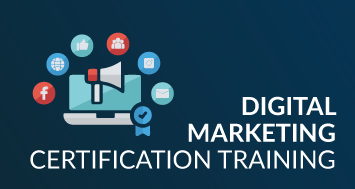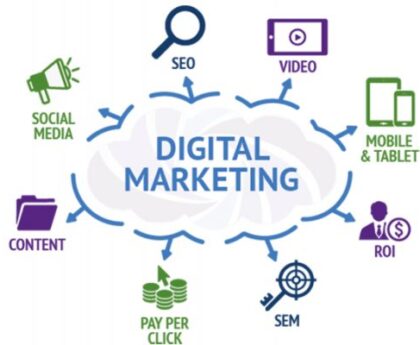A career in digital marketing requires both technical skills and soft skills. On the technical side, proficiency in areas like search engine optimization (SEO), pay-per-click (PPC) advertising, social media marketing, email marketing, and web analytics are key. Using tools like Google Analytics, Google Ads, Facebook Ads Manager, Hootsuite, and MailChimp are commonplace in digital marketing roles. Having a solid understanding of website architecture, user experience principles, and conversion optimization can also be beneficial.
Soft skills are equally important in digital marketing. Strong communication skills, both written and verbal, allow you to effectively collaborate cross-functionally and convey complex information simply. Creativity and design thinking help you develop innovative campaigns and content. Analytical and critical thinking skills enable you to interpret data, identify insights, and make optimized decisions. Time management, project management, and organization are essential to juggle multiple campaigns and priorities. An innate sense of curiosity helps you stay on top of the latest digital marketing trends and technologies. Patience and persistence are also useful when dealing with long sales cycles and experimenting to find what works. The ability to thrive in a fast-paced environment with evolving priorities is a must.
Education Requirements
A degree is not always required to start a career in digital marketing, but having a bachelor’s degree in a relevant field like marketing, communications, or business is generally recommended and preferred by most employers.
While hands-on experience and demonstrable skills are valued, a degree shows foundational knowledge and understanding of core marketing concepts. Some of the most applicable college majors for digital marketing roles include marketing, communications, journalism, advertising, public relations, media studies, and business administration (with a marketing focus).
Taking courses in social media marketing, search engine optimization, web analytics, content marketing, and digital advertising will also help prepare you for a career in the field. Many colleges now offer specialized digital marketing degrees at the undergraduate and graduate levels.
Professional certifications are another option to build your skills and resume without formally pursuing a 4-year marketing degree. There are many reputable digital marketing certificate programs that can be completed online in a matter of months. Topics covered include search marketing, social media, email marketing, mobile marketing, and digital strategy.
Popular certificates include those from Google, HubSpot, Facebook, and the Digital Marketing Institute. While less time intensive than a full degree, high-quality certification programs can teach relevant and in-demand digital marketing skills. They also signal to employers that you are actively investing in your professional education.
So while a formal degree is not strictly required, some combination of education and hands-on training is recommended to succeed in the digital marketing field. Ongoing learning and skill development is crucial given how rapidly the digital landscape evolves. Whether through a degree program, certification, or self-study, being able to demonstrate your knowledge is key.
A degree in marketing opens a gateway to a diverse array of career opportunities, blending creativity with strategic thinking. This article explores the expansive landscape of possibilities that await individuals with a marketing degree, highlighting the versatility and the valuable skills acquired during the course of their education.
- Brand Management:
One of the quintessential roles for marketing graduates is brand management. Working as a brand manager involves developing and implementing strategies to enhance brand visibility, engage audiences, and drive brand loyalty. Professionals in this role collaborate with various teams to ensure that the brand image aligns with organizational goals.
- Advertising and Campaign Management:
Marketing graduates often find themselves in the exciting world of advertising. Whether working for an advertising agency or within an organization, individuals in this field create and execute campaigns to promote products or services. This involves crafting compelling messages, choosing suitable channels, and analyzing campaign effectiveness.
- Digital Marketing Specialist:
As digital platforms continue to dominate the marketing landscape, there is a growing demand for digital marketing specialists. Marketing graduates can specialize in areas such as search engine optimization (SEO), social media management, email marketing, and content creation for the digital realm.
- Market Research Analyst:
For those inclined towards data analysis and market trends, a career as a market research analyst may be appealing. Marketing graduates in this role gather and analyze data to provide insights into market trends, consumer behavior, and competitive landscapes. These insights guide strategic decision-making for businesses.
- Sales and Business Development:
Marketing degrees also equip individuals with skills valuable in sales and business development. Professionals in these roles leverage their understanding of consumer behavior and market trends to drive sales, establish partnerships, and contribute to the overall growth of the business.
- Public Relations (PR) Specialist:
A degree in marketing provides a solid foundation for a career in public relations. PR specialists focus on managing the reputation of individuals or organizations. They create and maintain positive public images through media relations, event planning, and communication strategies.
- Retail Management:
Marketing graduates often find themselves in the fast-paced world of retail management. Whether managing a store or overseeing the marketing strategies for a retail brand, individuals in this field work to enhance customer experiences, optimize product placements, and drive sales.
- Event Planning and Management:
Event planning is another exciting avenue for marketing professionals. From coordinating product launches to organizing promotional events, marketing graduates use their creativity and organizational skills to create memorable experiences that resonate with target audiences.
- Entrepreneurship and Startups:
Many marketing graduates venture into entrepreneurship, launching their own businesses or joining startups. The skills acquired in marketing programs, such as market research, strategic planning, and brand development, prove invaluable for those navigating the challenges of building and growing a business.
- Nonprofit and Cause Marketing:
For individuals passionate about making a positive impact, a marketing degree can lead to a fulfilling career in nonprofit or cause marketing. Marketing professionals in this sector work to raise awareness, garner support, and drive engagement for social, environmental, or humanitarian causes.
A marketing degree is a passport to a world of opportunities, where creativity meets strategy and innovation fuels success. From shaping brand identities to navigating the digital landscape, marketing graduates possess a versatile skill set that can be applied across industries and professions. Whether pursuing traditional marketing roles or exploring emerging fields, individuals with a marketing degree are well-equipped to make meaningful contributions to the dynamic and ever-evolving world of marketing and business.
Property in Gurgaon
Property in Gurgaon
Property in Gurgaon
Property in Gurgaon
Property in Gurgaon
Property in Gurgaon
Property in Gurgaon
Property in Gurgaon
Property in Gurgaon
Property in Gurgaon
Property in Gurgaon
Property in Gurgaon
Property in Gurgaon
Property in Gurgaon
Property in Gurgaon




